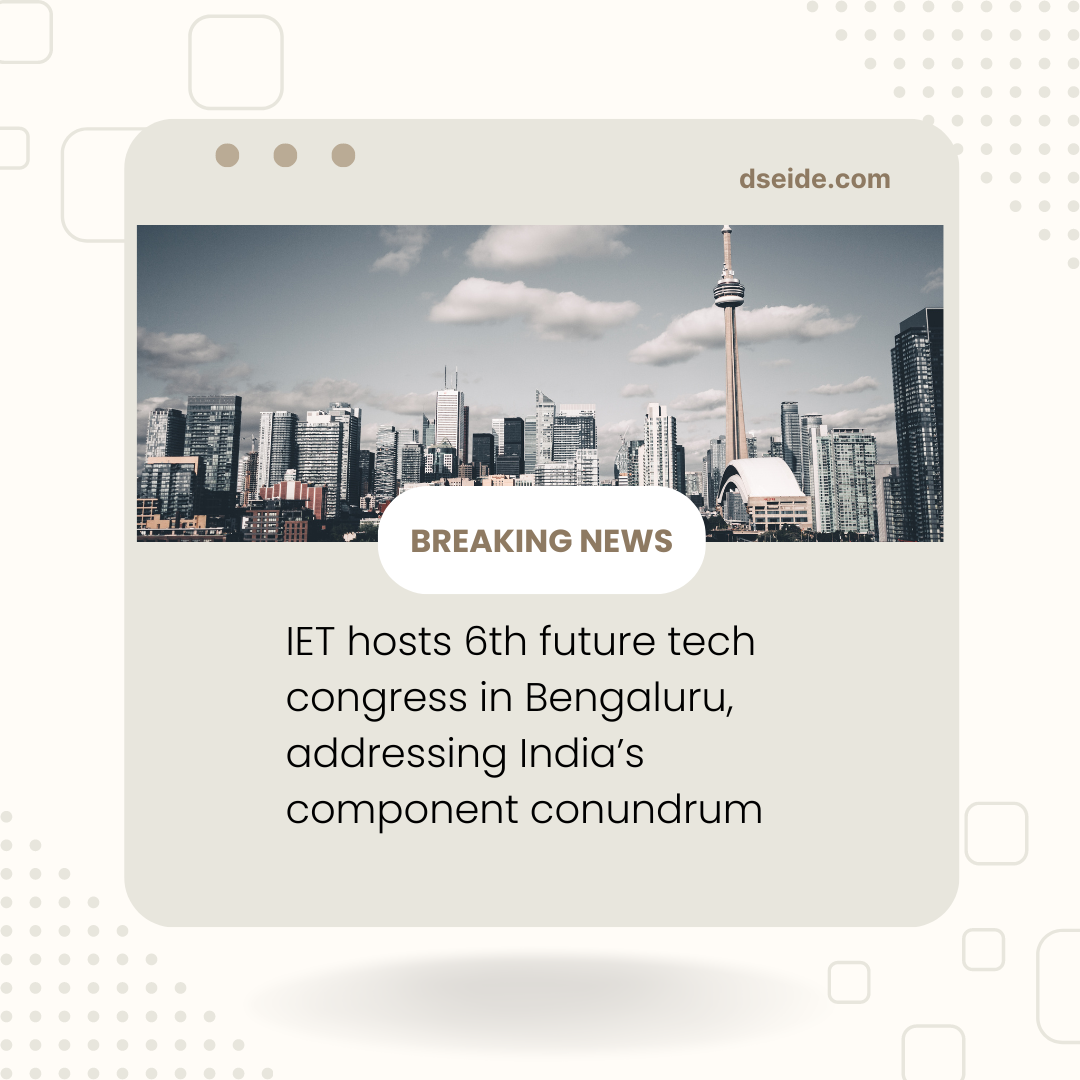The Institution of Engineering and Technology (IET) hosted the 6th edition of Future Tech Congress, focusing on the theme “India’s Component Conundrum,” at Sheraton, Whitefield, Bengaluru. The one-day event brought together industry experts to discuss the challenges and opportunities in building a robust Electronic System Design and Manufacturing (ESDM) ecosystem in India. The conference concluded with actionable recommendations for stakeholders aimed at driving growth and innovation in India’s ESDM sector.
Padma Bhushan recipient Dr Arogya Swamy Paul raj, an Indian-American electrical engineer and academic, delivered the Super Keynote, emphasising the need for India to ascend the value chain in high-tech sectors. “India stands at a critical juncture where fostering innovation, persistence, and entrepreneurship is essential to building a robust domestic capability in electronic components, particularly semiconductors,” said Dr Paul raj. He further highlighted that India must address challenges such as intellectual property, high skill requirements, and intense R&D demands to excel in advanced technology segments.
The event addressed the urgent need for India to reduce its dependency on imported components, a key factor in realising the nation’s $30 trillion economy goal by 2047. Discussions centred on three key technologies—Generative AI, Industrial Metaverse, and Quantum Technologies—and their impact on the Healthcare, Manufacturing, and Mobility sectors.
Padma Bhushan recipient Dr Arogya Swamy Paul raj, an Indian-American electrical engineer and academic, delivered the Super Keynote, emphasising the need for India to ascend the value chain in high-tech sectors. “India stands at a critical juncture where fostering innovation, persistence, and entrepreneurship is essential to building a robust domestic capability in electronic components, particularly semiconductors,” said Dr Paul raj. He further highlighted that India must address challenges such as intellectual property, high skill requirements, and intense R&D demands to excel in advanced technology segments.
The event addressed the urgent need for India to reduce its dependency on imported components, a key factor in realising the nation’s $30 trillion economy goal by 2047. Discussions centred on three key technologies—Generative AI, Industrial Metaverse, and Quantum Technologies—and their impact on the Healthcare, Manufacturing, and Mobility sectors.
The Institution of Engineering and Technology (IET) hosted the 6th edition of Future Tech Congress, focusing on the theme “India’s Component Conundrum,” at Sheraton, Whitefield, Bengaluru. The one-day event brought together industry experts to discuss the challenges and opportunities in building a robust Electronic System Design and Manufacturing (ESDM) ecosystem in India. The conference concluded with actionable recommendations for stakeholders aimed at driving growth and innovation in India’s ESDM sector.
Padma Bhushan recipient Dr Arogya Swamy Paul raj, an Indian-American electrical engineer and academic, delivered the Super Keynote, emphasising the need for India to ascend the value chain in high-tech sectors. “India stands at a critical juncture where fostering innovation, persistence, and entrepreneurship is essential to building a robust domestic capability in electronic components, particularly semiconductors,” said Dr Paul raj. He further highlighted that India must address challenges such as intellectual property, high skill requirements, and intense R&D demands to excel in advanced technology segments.
The event addressed the urgent need for India to reduce its dependency on imported components, a key factor in realising the nation’s $30 trillion economy goal by 2047. Discussions centred on three key technologies—Generative AI, Industrial Metaverse, and Quantum Technologies—and their impact on the Healthcare, Manufacturing, and Mobility sectors.




